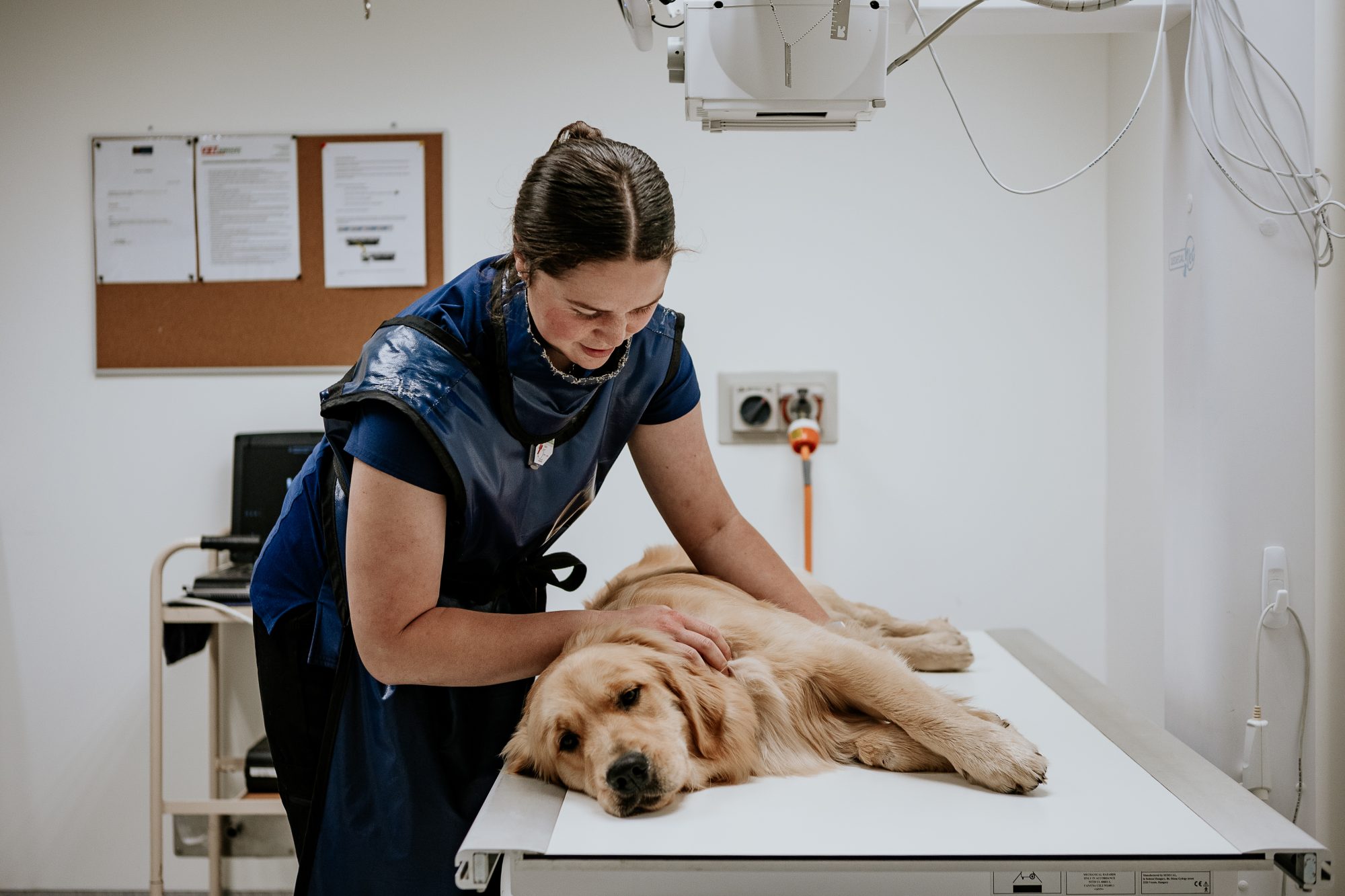How a Veterinary Specialty Hospital Can Treat Your Pet dog's Ailments With Advanced Techniques
Veterinary specialty hospitals play a necessary role in attending to complex wellness problems in animals. They make use of advanced methods and technologies that boost medical diagnosis and therapy. With access to specialized services, pet owners can find customized solutions for their animals' conditions. This raises important questions concerning the particular techniques utilized and the advantages they provide. Understanding these elements can especially impact a pet's healing trip.
Comprehending the Duty of Veterinary Specialty Hospitals
Although main care veterinarians provide crucial solutions for pet health and wellness, veterinary specialty hospitals play an important function in dealing with complicated medical conditions that need innovative diagnostics and therapy. These facilities are outfitted with specialized innovation and skilled specialists who focus on certain areas of vet medication, such as cardiology, oncology, and neurology.
Veterinary specialty hospitals help with a collaborative approach, often functioning in combination with a pet dog's key veterinarian to develop comprehensive treatment strategies. They offer accessibility to advanced imaging strategies, such as MRI and CT scans, which are not typically readily available in conventional facilities. On top of that, these hospitals use critical care unit for seriously unwell pets, guaranteeing day-and-night surveillance and assistance.
Specialized Providers Offered by Veterinary Experts
Veterinary experts provide crucial services that improve pet dog health care, particularly via sophisticated analysis imaging strategies. These devices allow precise assessments of complex medical problems, causing a lot more reliable targeted treatment strategies. By integrating these specialized solutions, vet hospitals can greatly boost patient end results and general wellness.
Advanced Diagnostic Imaging
Advanced analysis imaging plays an important duty in modern-day veterinary medicine, making it possible for experts to obtain detailed understandings into a pet's wellness. Methods such as X-rays, ultrasound, computed tomography (CT), and magnetic vibration imaging (MRI) enable veterinarians to visualize internal frameworks without invasive procedures - Learn More. These sophisticated imaging methods help in diagnosing a variety of conditions, from growths and cracks to body organ abnormalities. By offering clear photos, they enhance the accuracy of analyses, which is important for effective therapy planning. Additionally, specialized vet radiologists translate these images, ensuring that refined issues are not forgotten. Eventually, advanced diagnostic imaging is important in supplying substantial treatment, as it enables for very early detection and intervention in a pet dog's medical problems

Targeted Therapy Plans
Targeted treatment plans are crucial for dealing with the details health needs of pet dogs, making sure that each pet obtains personalized care tailored to its unique condition. Veterinary experts establish these plans based upon detailed assessments, including advanced diagnostic imaging and laboratory tests. By concentrating on the individual family pet's medical diagnosis, type, age, and way of living, professionals can recommend reliable therapies, ranging from medicine changes to surgical interventions. These plans likewise include follow-up care and checking to track the animal's progression and make essential adjustments. This method advertises ideal results and improves the overall quality of life for pet dogs encountering intricate health and wellness difficulties. Ultimately, targeted therapy plans represent a dedication to supplying the greatest requirement of veterinary treatment.
Advanced Diagnostic Techniques for Accurate Diagnoses
As family pets encounter significantly intricate wellness challenges, the integration of sophisticated diagnostic strategies has actually ended up being necessary for achieving exact medical diagnoses. Veterinary specialty hospitals make use of advanced imaging technologies, such as MRI and CT checks, to visualize inner structures with remarkable clarity. These methods allow veterinarians to recognize abnormalities that might not show up via standard techniques.
In addition to imaging, advanced laboratory examinations, consisting of genetic and biomarker analyses, provide important understandings into underlying conditions. These examinations enable veterinarians to discover conditions at earlier phases, assisting in prompt treatment. Additionally, making use of endoscopy enables for straight visualization of inner body organs, helping in the diagnosis of intestinal and respiratory issues.
Ingenious Therapy Choices for Facility Problems
Cutting-edge therapy options for complex conditions in family pets have actually emerged as a vital emphasis within vet specialty hospitals. Utilizing cutting-edge diagnostic tools, these facilities improve their ability to identify concerns precisely and tailor appropriate treatments. Vet services. Furthermore, the implementation of minimally invasive treatments and advanced rehabilitation strategies provides pets a far better opportunity at healing with reduced pain
Innovative Diagnostic Tools
While the landscape of vet medication continues to advance, innovative diagnostic devices have actually become necessary possessions for attending to complex problems in pet dogs. These sophisticated technologies, consisting of electronic imaging, ultrasound, and molecular diagnostics, enable vets to get exact details about a family pet's wellness condition rapidly. For instance, high-resolution imaging techniques can expose intricate information of internal frameworks, allowing accurate evaluations of injuries or diseases. Furthermore, genetic testing provides insights right into hereditary problems, leading tailored treatment strategies. By leveraging these cutting-edge analysis tools, veterinary specialty hospitals can improve their capacity to identify ailments that might have formerly gone undiscovered. Inevitably, these innovations add to improved end results and enrich the total top quality of treatment offered to precious animals.
Minimally Intrusive Treatments
Innovations in vet medicine have actually led the way for minimally invasive treatments, which provide brand-new therapy options for complicated problems in pets. These innovative techniques, such as laparoscopy and endoscopy, enable vets to execute surgical procedures with smaller sized lacerations, reducing trauma and recuperation time. By making use of specialized tools and cameras, veterinarians can diagnose and deal with issues like lumps, gastrointestinal problems, and joint problems with accuracy - Learn More. This strategy minimizes discomfort and results in quicker recovery, enabling pets to go back to their normal tasks faster. Furthermore, minimally invasive procedures commonly result in less scarring and a reduced danger of issues. As veterinary specialty hospitals embrace these innovative methods, animal proprietors can feel extra confident in their family pets' care and total well-being
Advanced Recovery Techniques
As veterinary medicine advances, advanced rehabilitation strategies are coming to be important for handling intricate conditions in animals. These approaches include a series of innovative treatment options, including hydrotherapy, laser treatment, and physical therapy. Hydrotherapy uses water resistance to enhance flexibility and reinforce muscle mass, advantageous for animals recuperating from surgical treatment or injury. Laser therapy promotes recovery by reducing inflammation and pain, promoting quicker recuperation times. Physical therapy utilizes targeted exercises to boost strength and flexibility, tailored per family pet's specific demands - Veterinary. In addition, techniques like acupuncture and chiropractic care adjustments can even more sustain rehab by easing pain and improving overall well-being. Veterinary specialty hospitals are significantly including these strategies, ensuring pets get complete treatment that attends to both psychological and physical recuperation, inevitably boosting their lifestyle
The Importance of a Multidisciplinary Approach
A multidisciplinary technique in veterinary care substantially improves the therapy outcomes for pet dogs, as it incorporates competence from numerous specialties to deal with complicated health concerns. This collective approach involves vets, experts, service technicians, and assistance personnel functioning together to develop complete therapy plans customized to every animal's unique demands. By integrating understanding from fields such as surgical treatment, interior medicine, oncology, and rehabilitation, veterinarians can identify hidden problems that may otherwise go undetected.
This approach cultivates communication amongst team participants, making sure that all elements of an animal's health are taken into consideration. For example, a family pet recuperating from surgery might take advantage of input from both a surgeon and a recovery professional, causing a more effective recuperation procedure. Eventually, a multidisciplinary technique not only improves the top quality of treatment but also enhances the general wellness of pets, giving them with the ideal possibility for an effective recovery and long-lasting wellness.
Cutting-Edge Innovation in Veterinary Medication

Telemedicine has actually also arised as a necessary resource, making it possible for vets to seek advice from animal owners remotely, consequently facilitating timely treatments. In addition, the combination of expert system in evaluating medical data contributes to more effective therapy strategies customized to specific needs. Sophisticated lab devices enables for fast blood evaluation and pathogen detection, fostering prompt clinical reactions. As vet specialty hospitals remain to include these improvements, they not just enhance the top quality of treatment however additionally substantially boost the total well-being of animals.
Success Stories: Real-Life Examples of Pet Dog Recovery
Many heartfelt success tales illustrate the remarkable recuperations of pet dogs dealt with at veterinary specialty hospitals. One such instance involved Bella, a Golden Retriever diagnosed with a severe orthopedic issue. After innovative surgical treatment and recovery, Bella was not only able to stroll once again yet additionally to run joyfully in the park, much to her owners' delight.
Another motivating tale attributes Max, a cat with persistent kidney condition. With specialized dietary management and ingenious treatments, Max's condition stabilized, allowing him to restore his energy and hunger. His proprietors were tickled to see him go back to his lively self.
Finally, Luna, a Dachshund who suffered a back injury, went through cutting-edge therapies, bring about a miraculous healing. These stories highlight the knowledge and empathy here located in vet specialty hospitals, showcasing their ability to restore health and happiness to cherished animals and their households.
Regularly Asked Inquiries
What Should I Expect During My Animal's Specialty Consultation?
During a specialized appointment, pet owners can expect a complete exam, comprehensive case history conversations, analysis tests, and customized therapy alternatives. The veterinary professional will give insights and referrals for the animal's specific health and wellness demands.
Exactly How Can I Locate a Veterinary Specialty Hospital Near Me?
To find a vet specialty hospital nearby, one can utilize online internet search engine, inspect neighborhood directories, or look for referrals from primary vets. In addition, animal owner discussion forums can offer valuable insights and experiences regarding neighboring facilities.
Are Specialty Solutions Covered by Pet Dog Insurance Policy?
Specialty services may be covered by family pet insurance coverage, yet coverage varies by plan. Proprietors must thoroughly examine their insurance plan information and consult their copyright to comprehend the extent of insurance coverage for specialty veterinary solutions.
How Much Time Will My Animal's Treatment Take?

The period of a pet's treatment can differ markedly, often varying from a few days to a number of weeks. Variables affecting this timeline include the particular problem, therapy type, and the family pet's overall health and wellness and action.
What Are the Costs Connected With Specialty Veterinary Treatment?
The prices connected with specialty veterinary treatment can differ widely, usually ranging from hundreds to thousands of bucks. Aspects influencing these expenses consist of the complexity of the problem, needed treatments, and analysis procedures essential for reliable care.
Veterinary specialty hospitals play a necessary function in dealing with intricate wellness problems in animals. Primary care vets supply necessary services for pet wellness, veterinary specialty hospitals play a crucial role in addressing intricate clinical conditions that require advanced diagnostics and therapy. Veterinary specialty hospitals promote a joint strategy, typically working in combination with a pet dog's main vet to produce complete treatment strategies. Innovative therapy options for complicated problems in pet dogs have actually emerged as a crucial focus within veterinary specialty hospitals. A multidisciplinary method in veterinary care significantly improves the treatment outcomes for pets, as it integrates expertise from numerous specializeds to resolve complicated health and wellness problems.